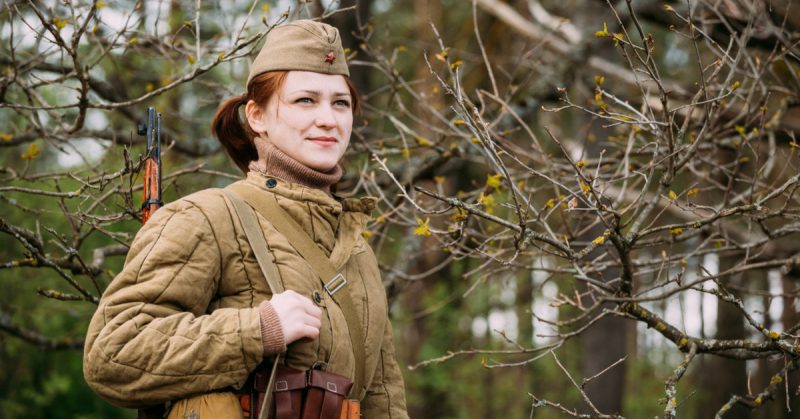“The Unwomanly Face of War” is the name of one of the most famous books about the Great Patriotic War, where the war is shown through the eyes of a woman. One of the women represented in the book who showed great courage during the Second World War was Ekaterina Mikhailova-Dyomina. She is also one of a few women who served in the Soviet Marines.
Ekaterina Mikhailova (Katya) was born in Leningrad in 1925. At an early age, she lost her parents. Her father was a commander in the Red Army and died in 1927, and her mother later died of typhus. Katya had only an elder brother and sister left. She went to school and lived in an orphanage, but later she lived with her sister.
By the summer of 1941, Ekaterina had graduated from the 9th grade of school and nursing courses. For the summer vacation period, she traveled by train to her older brother in Brest. He served as a pilot on the border of the state.
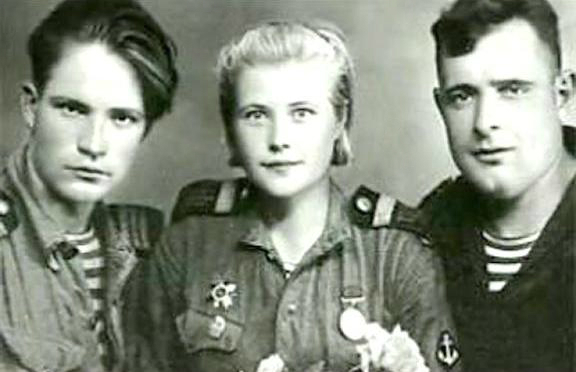
On the morning of June 22, the train on which Katya was traveling fell under the bombing of German aircraft. All those who survived, including Katya, went to Smolensk on foot. Later, Catherine recalled:
“We went to Smolensk. For four days, we walked along the Minsk-Moscow highway. On approach to Smolensk, we met a passing truck, and it was a great success.”
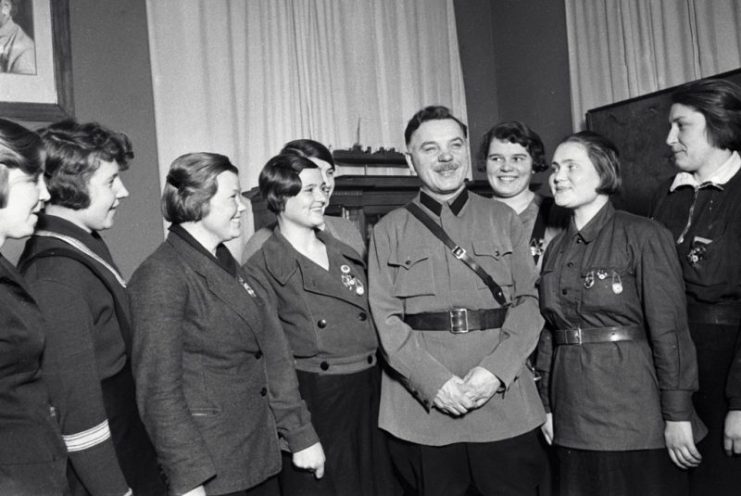
In Smolensk, Katya heard from the loudspeaker that the war had begun. In addition, the radio said, “Komsomol members voluntarily go to the front“. Being a 15-year-old Komsomol member, Ekaterina Mikhailova went to the military commissariat. However, the military commissar drove her out.
Remaining in an unfamiliar city, Katya walked along the streets until she saw soldiers on the banks of the Dnieper. Katya persuaded them to take her on as a medic.
“They took me. They gave me a medical bag. I was with them in the battles near Yelnya – a terrible thing.”
Katya then provided medical assistance to wounded infantrymen. In the autumn near the city of Gzhatsk, she received a serious wound to the leg. She went to the hospital first in the Urals, and then in Baku.
After recovery, Katya left the hospital herself and went to the military enlistment office. In order to get into the fleet, Katya forged her age in the documents and added on two years.
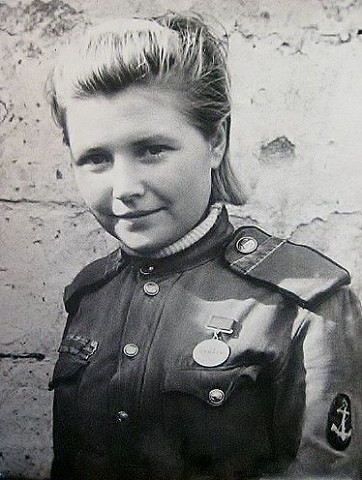
She was successful in joining and from January 1942 Katya entered the service as a nurse for the military-hospital ship Krasnaya Moskva. During the fighting near Stalingrad, the Krasnaya Moskva took the many of the wounded and transported them across the sea to Krasnovodsk.
Being on the ship, Katya heard on the radio that a battalion of volunteers was being formed in Baku, which would be landed from armored boats and fight on land. She decided to join the volunteers. Her recollection:
“I wanted to go there. I knew how the sailors were fighting. Where they are, there is a victory. I went to the commander on the ship Bailov…”
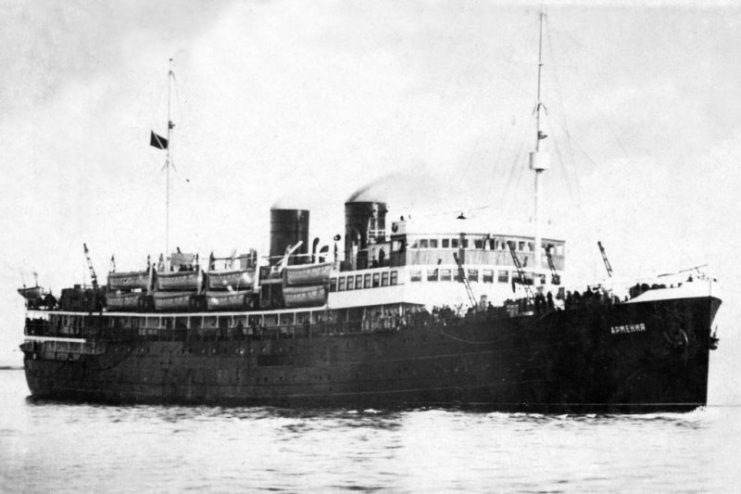
However, the commander of the ship refused to allow her to join stating they did not take women. She tried to persuade the commander but to no avail. Without losing hope, Katya wrote a letter to Moscow (according to another version, the letter was intended for Stalin) with the request to enroll her in the 369th Marine Battalion.
After 28 days, the commander of the battalion received a letter instructing him to take Ekaterina Mikhailova in the battalion and she was allowed into the Marine Corps.
She received her first medal for “courage” in September 1943. After the landing near Temryuk, about 500 marines died on the Taman Peninsula. Although injured herself, Katya helped 17 fighters and took them out of the battlefield. Her comrades began to refer to her as “sister”.
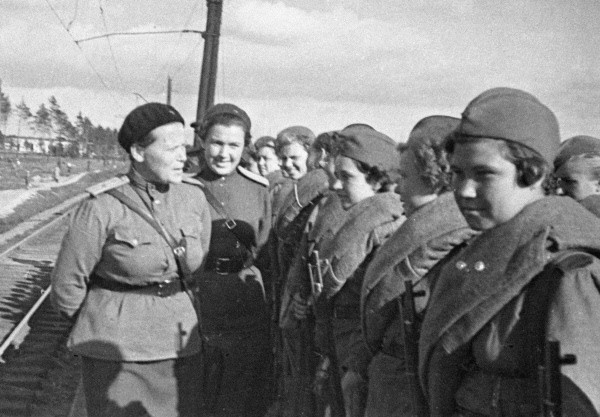
In November 1943, the 369th battalion took part in fierce battles near Kerch. At night from the Taman shore, women flew on U-2 planes and dropped food supplies, but there was a lack of water. The well with water was located in a neutral territory between the Russians and the Germans. While the battalion’s soldiers were asleep, she took a desperate step.
“I went to the well, tied the rope to the bucket. I heard a noise behind me. I looked back and on a hill about thirty meters away there was a German. He took from his pocket a harmonica and began to say something. It seemed to me that he asked what my name was. I said – Katyusha. In response, I heard “A, Katyusha! haha.”
Luckily, the Germans did not kill her believing her to be just a young woman.
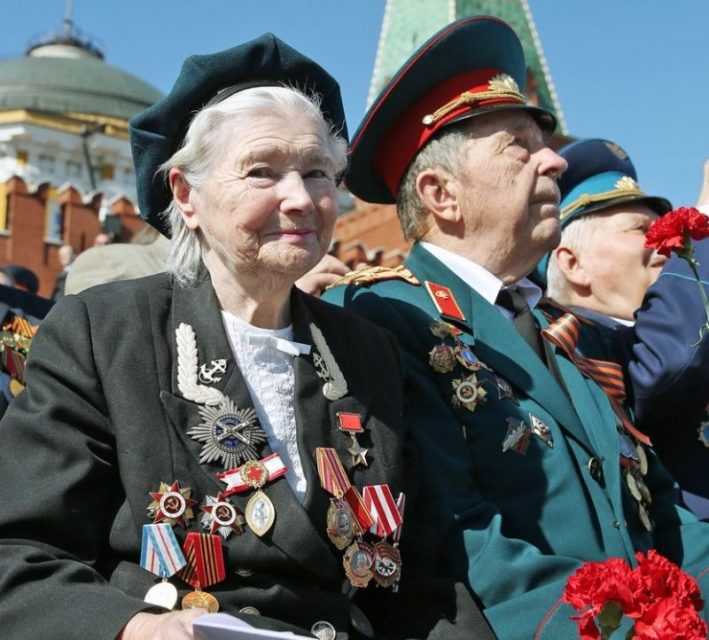
The marines of the 369 battalion held their positions near Kerch. However, when the situation worsened they made a 20-kilometer march and captured Mount Mithridates. There was heavy fighting during the battle and she maintained care for wounded soldiers while under fire from the Germans. For her services, she was awarded the Order of the Patriotic War. In the award sheet, it was written:
“In the course of the heavy fighting, the medical officer Ekaterina Mikhailova showed herself courageously, under the fire of the enemy, she bandaged 85 wounded soldiers and officers, and carried out 13 wounded from the battlefield.”
On August 22, 1944, the Marines of the 369 battalion crossed the Dniester estuary. She also assisted in the assault of an enemy bunker and the capture of enemy soldiers during the engagement. For this, Katya was awarded her first Order of the Red Banner.
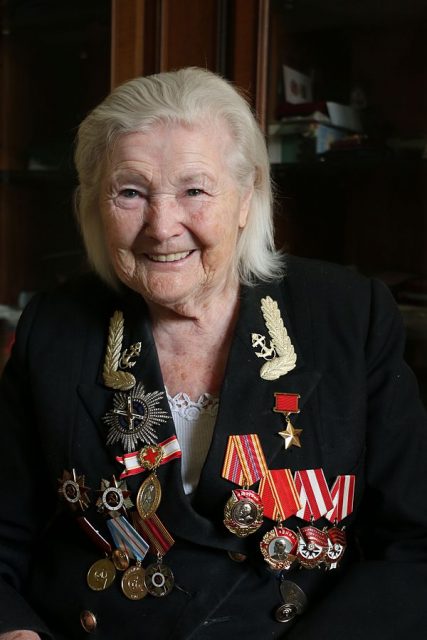
In early December 1944, she took part in the operation to seize the port of Prahovo and the fortress of Ilok. In this battle, she was injured yet again but remained in the ranks helping other wounded soldiers. The unit was forced to climb into the trees due to flooding and the freezing water. They continued firing from their positions in the trees, but many were killed or wounded and fell into the freezing water.
Katya was shot through the hand, but jumped into the water to assist the injured. She used belts and rifle slings to attach the wounded soldiers to trees and keep them from drowning. She then provided first aid and pulled 17 marines from the battlefield.
After the battle, Katya wounded and weakened from pneumonia, was urgently evacuated to a hospital. For her actions, she was again given the Order of the Red Banner.
After recovery, Catherine took part in the storming of Vienna and continued to fight with her unit. After the war she became a doctor and continued to help people. She eventually married. Despite the attempts by several people including members of her unit, it wasn’t until 1990, that she was finally awarded the title of Hero of the Soviet Union. The award was presented by Mikhail Gorbachev.
Read another story from us: 13 Roles Soviet Women Filled in WW2
In 1964, she and director Victor Lisakovich made a documentary film called «Катюша» (Katyusha), which received the Golden Dove of the World prize. In 2008, another documentary film «Катюша, большая и маленькая» (Katyusha Big and Small) was made about her story.
